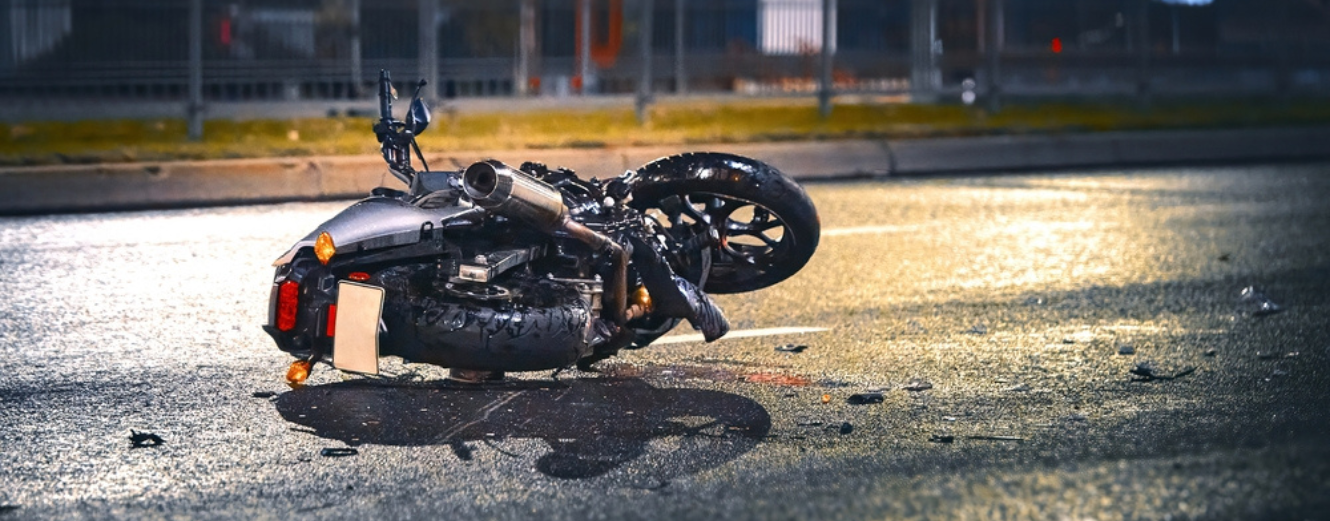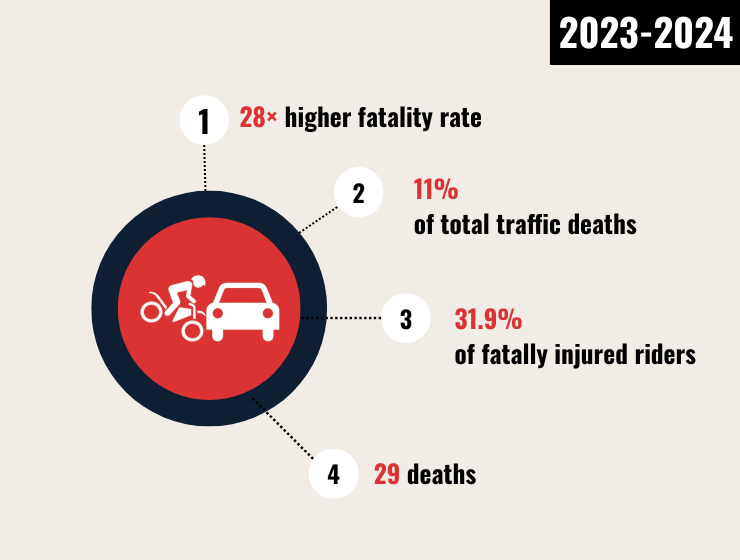Motorcycle accidents often result in life-changing injuries—and insurance companies rarely play fair when riders are involved. That’s why bikers across the state turn to a trusted West Virginia motorcycle accident lawyer at Manchin Injury Law Group for help.
With over 30 years of experience, our attorneys understand what’s at stake after a serious crash. We work closely with medical experts and crash investigators to build strong, evidence-backed cases—and we don’t charge anything unless we win.
Motorcycle accidents often result in serious injuries, long-term medical needs, and tough battles with insurance companies. When you hire our team, you get more than a lawyer. You get a dedicated advocate by your side.
We begin by listening to your story and explaining your legal options. Then we investigate the crash, gather records, and consult with experts if needed, because every detail matters.
Our team handles all insurance communications to shield you from lowball offers and blame-shifting. If they won’t negotiate fairly, we’re ready to take your case to court.
Through it all, we keep you informed, answer your questions, and make sure you’re never left in the dark.
Car Accident
Work Injury
Medical Malpractice
Personal Injury
Every motorcycle crash case is personal, and so is our commitment to your recovery. From the moment you contact us, we prioritize clear communication, strategic guidance, and compassionate support tailored to your needs. With over 40 years of experience handling complex motorcycle injury cases across West Virginia, we bring seasoned trial experience and a client-first mindset to every case. Our firm has recovered millions in verdicts and settlements, always focused on securing the best outcome for injured riders.
What sets us apart is how we work. We take the time to listen, explain your legal options clearly, and act in your best interest at every step. With our contingency fee promise, you won’t pay anything unless we win your case. If you’re recovering from a motorcycle crash in Fairmont, Morgantown, Charleston, or anywhere in West Virginia, we’re here to help you move forward with confidence.
After a motorcycle crash, it’s easy to feel overwhelmed. Between medical treatment and bike repairs, handling the legal side alone can quickly become stressful.
A motorcycle accident lawyer understands how to handle insurance tactics. They can prevent lowball offers and push for the full amount you’re owed.
These attorneys also know what kind of evidence matters. From helmet laws to visibility issues, they’re familiar with the factors unique to motorcycle claims.
Having someone familiar with West Virginia’s legal system ensures nothing is missed — including important deadlines that could jeopardize your case.
Most importantly, you gain peace of mind. With a lawyer managing the claim, you can focus on healing while they fight for a fair result.

Motorcyclists face a significantly higher risk on the road compared to other drivers. According to the National Highway Traffic Safety Administration (NHTSA), riders are 28 times more likely to die in a crash than occupants of passenger vehicles.
In West Virginia, motorcycle fatalities continue to be a serious concern. In 2019 alone, motorcyclists accounted for roughly 11% of all traffic deaths statewide, totaling an estimated 29 fatalities.
Roadway infrastructure, blind spots, and distracted driving all contribute to these numbers. Many of these accidents are preventable — and nearly all result in devastating consequences for the rider and their family.
These statistics serve as a reminder of why legal support is crucial after a motorcycle crash. A qualified West Virginia motorcycle accident lawyer can help ensure that victims and their families aren’t left to carry the financial burden alone.

After a serious motorcycle crash, your first legal step is typically filing a claim with the at-fault party’s insurance provider. This kicks off an investigation into how the accident happened and who should be held responsible.
Once your claim is submitted, the insurance company may request medical records, accident reports, and witness statements. This is where having an attorney matters — they can organize the evidence and prevent your words from being used against you.
If the insurance company refuses to offer a fair settlement, your lawyer may recommend filing a lawsuit. This brings your case into civil court, where a judge or jury decides the outcome. Most motorcycle accident claims settle before trial, but it’s important to be prepared for either path.
The process can take several months to a few years depending on the complexity of the case. An experienced motorcycle accident lawyer in West Virginia will guide you through each stage and keep your case on track.
Move to safety if possible and call 911. Get medical help, take photos of the scene, and avoid discussing fault. Contact a motorcycle accident lawyer before speaking with insurers to protect your rights and preserve evidence.
No. West Virginia follows a fault-based system. This means the driver who caused the accident is responsible for paying damages, typically through their insurance. You can file a claim directly against the at-fault party’s policy.
Yes. While West Virginia law requires helmets, not wearing one doesn’t prevent you from seeking compensation. However, your compensation might be reduced if the defense proves a helmet would have significantly reduced your injuries.
You have two years from the date of the accident to file a personal injury claim in West Virginia. Missing this legal deadline can permanently bar your right to seek compensation, so act promptly.
You may recover compensation for medical expenses, lost wages, property damage, pain and suffering, and emotional distress. In extreme negligence cases, punitive damages may also be available to hold the at-fault party accountable.
Liable parties may include the other driver, a local government for poor road conditions, or a manufacturer if a defective part caused the crash. An attorney can investigate and identify all responsible parties.
Most motorcycle accident attorneys, including ours, work on a contingency fee basis. That means you pay nothing upfront and only owe legal fees if we win your case and recover compensation for you.
Motorcycle crashes often cause serious injuries such as road rash, broken bones, spinal cord damage, brain trauma, and internal injuries. These may require extensive treatment, long-term care, and support through legal compensation claims.
Fill out the form below to get in touch!
If you or a loved one was injured in a motorcycle accident, now is the time to protect your rights. Our attorneys are standing by to help you understand your options and pursue the compensation you deserve — no fee unless we win.
While you work on making a full recovery, our car accident lawyers work hard to build your case. We are dedicated to recovering the financial compensation you deserve as an injured victim of negligence. Our experienced law firm represents clients in car accident cases in Charleston, Martinsburg, Weston, and various other locations throughout West Virginia. Call our firm today for a free consultation and legal advice about recovering fair compensation after suffering injuries sustained in motor vehicle accidents.
We offer a free initial consultation at our office in the Manchin Professional Building — our home since 1983 — conveniently located in Fairmont.
If you are unable to visit our firm, we can come to your home or hospital room.
Fill out the form below to get in touch!